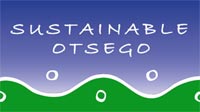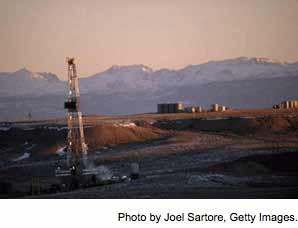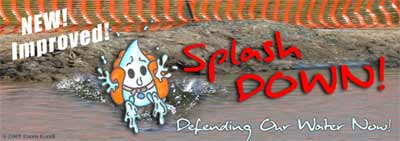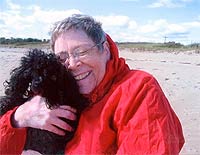Biblio
A Systems Approach to Energy Transitions
Presentations from the Conference held on March 30-31, 2011 in Watkins Glen, NY.
Timothy W. Kelsey, Ph.D., State Program Leader, Economic & Community Development, Penn State University
Marcellus Shale Gas Drilling: What Should We Plan For?
Susan Christopherson, Dept. of City and Regional Planning, Cornell University
Energy Planning in New York State
John Williams, Director of Energy Analysis, NYSERDA
Albert R. George, Ph.D., Mechanical , Aerospace & Systems Engineering, Cornell University
Natural Gas, Wind and Biofuels
Jeffrey Jacquet, Ph.D. candidate, Dept. of Natural Resources, Cornell University
Supplies of Sustainably Produced Biomass in New York
Timothy A. Volk, Sr. Research Associate, SUNY Environmental School of Forestry
Pennsylvania Energy Impacts Assessment
Nels Johnson, Deputy State Director, The Nature Conservancy, Pennsylvania Chapter
Planning for Energy Transitions
Daniel A. Spitzer, Partner, Hodgson Russ LLP
Amy Mall. Switchboard. Natural Resources Defense Council (NRDC).
Articles tagged hydraulicfracturing posted by Amy Mall, Senior Policy Analyst, Boulder, Colorado in "Health and the Environment".
"NRDC’s Land Program is dedicated to protecting our nation’s wildest places and most valuable wildlife habitat from irresponsible industrial development."
See: "Today's reports of spills from natural gas operations", 3/18/2010.
See also: Mall, A., S. Buccino, and J. Nichols. “Drilling down: Protecting western communities from the health and environmental effects of oil and gas production.” National Resources Defense Council. (October 2007). (PDF 48 pages, 13.7 MB.)
Sustainable Otsego is a loose, minimally structured network of local activists and supporters who seek to promote sustainable practices in the rural Leatherstocking region focused on Cooperstown and Otsego County, New York. Its' listserv provides a forum for the discussion of sustainability issues.
Includes links to expert opinions, products and chemicals fact sheets and current events.
Thousands of the largest water polluters in the United States are outside the Clean Water Acts reach because the Supreme Court has left uncertain which waterways are protected by that law.
As a result, some businesses are declaring that the law no longer applies to them. And pollution rates are rising. About 117 million Americans get their drinking water from sources fed by waters that are vulnerable to exclusion from the Clean Water Act.
See: New York Times, February 28, 2010. "Rulings Restrict Clean Water Act, Foiling E.P.A. | Mixplex
"We are, in essence, shutting down our Clean Water programs in some states. This is a huge step backward. When companies figure out the cops can't operate, they start remembering how much cheaper it is to just dump stuff in a nearby creek."
--Douglas F. Mundrick, EPA Lawyer.
Superior Well Services is one of the large companies being investigated by the U.S. House Energy and Commerce Committee to see if the gas extraction method known as hydraulic fracturing, or fracking, is a hazard to groundwater drinking supplies.
Superior Well Services, Inc. board faces investor investigation.
After the announcement to take over Superior Well Services, Inc. (NASDAQ:SWSI) by Nabors Industries Ltd. an investigation on behalf of current investors of Superior Well Services, Inc. (Public, NASDAQ:SWSI) over possible shareholder claims based on breach of fiduciary duty by certain members of the Superior Well Services board of directors in connection with their attempt to sell Superior Well Services, Inc. (NASDAQ:SWSI) was announced.
If you are a current investor in Superior Well Services, Inc. (NASDAQ:SWSI) shares, who purchased your SWSI stock prior to Monday, August 09, 2010, and/or have information relating to the investigation, you have certain options and you should contact the Shareholders Foundation, Inc by email at mail@shareholdersfoundation.com or call +1 (858) 779 - 1554.
Fracturing Systems: Hydraulic fracturing is a process of pumping water, oil, and/or gases with a proppant at sufficient pressure to create a fracture in a chosen formation. The goal is to create and prop open the fracture.
Student Disrupts Government Auction of 150,000 Acres Of Wilderness For Oil & Gas Drilling.
Democracy Now reports on student action by Tim DeChristopher.
In a national broadcast exclusive, University of Utah student Tim DeChristopher explains how he bought 22,000 acres of land in an attempt to save the property from drilling. The sale had been strongly opposed by many environmental groups. Stephen Bloch of the Southern Utah Wilderness Alliance said: "This is the fire sale, the Bush administrations last great gift to the oil and gas industry. This is the first 10 minutes of the interview. For the rest go to DemocracyNow!
 For full interview click here.
For full interview click here.
See: Judge says drilling lease lawsuit too late
See: Tim DeChristopher's blog and update on his legal battle.
See: As climate crime continues, who are we sending to jail? Tim DeChristopher?
On the day of a large rally outside the Capitol, Senate Democrats introduced the first significant legislation against hydraulic fracturing since the 2010 moratorium imposed by former Gov. David Paterson and the Department of Environmental Conservation.
Sens. Tony Avella, D-Whitestone, Liz Krueger, D-Manhattan, and Joseph Addabbo, D-Queens, introduced a package of bills April 11 that includes three bills for tighter regulations and transparency for oil and gas drilling and a bill by Avella to ban hydraulic fracturing, or hydrofracking, in New York State.
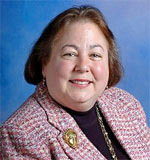
"I don't see it as that great of a request to require these gas companies to inform the public on what chemicals they're blasting into the Earth," said Krueger. "They want us to just fall in line and not ask any questions, to just trust them. Well, we saw what they did with Pennsylvania's trust, and I say no."
She was referring to a lawsuit filed by 31 Pennsylvania residents against the Southwest Energy Co. accusing the company of contaminating their water supplies for drinking, cooking and bathing with hazardous chemicals and pollutants as a result of hydrofracking.
Krueger's bill (S.425) would prohibit the use of fracking fluids "containing chemicals that pose a risk to human health." Also in the package is S.4251-a, a bill sponsored by Addabbo, that would require treatment facilities to test waste from hydraulic fracturing operations for radioactivity. The Assembly bill (A.2922) is sponsored by Robert Sweeney, D-Babylon...
See: New York State Assembly Passes Moratorium on Hydrofracking | Governor Vetoes Bill
Powder River region of northern Wyoming.
See: SkyTruth: Upper Green River Valley - A View From Above
Every day millions of gallons of clean ground water in the American West are being contaminated, all in the rush to drill for gas.
BILL WEST: It took thousands of years to recharge these aquifers.
They're pumping it out and in maybe ten years it will be gone...
Sharon Daggat and her husband have a 52 acre farm, 38 acres used as a vineyard, in the Steuben County town of Pulteney. They are concerned about a permit that would allow Chesapeake Energy to store hydrofracking wastewater in an empty natural gas well next to their property. Their property is less than a mile west of Keuka Lake. They fear contamination of their well water and damage to their vineyard.
Sharon Daggat of Pulteney, NY gives testimony.
Video by Stephen D. Cannerelli.
Statoil is one of the large companies being investigated by the U.S. House Energy and Commerce Committee to see if the gas extraction method known as hydraulic fracturing, or fracking, is a hazard to groundwater drinking supplies.
Statoil is a multinational energy corporation based in Norway. In 2008, Statoil acquired a 32.5% interest in the Marcellus shale gas acreage from Chesapeake Energy Corporation.
See: Marcellus Shale Gas
Environmentalists have long contended that the natural gas drilling method known as hydraulic fracturing — or “fracking” — poses a danger to drinking water supplies for millions of Americans.
Alarming reports of water contamination in states where such drilling is common, including Colorado, Pennsylvania and Wyoming, have exacerbated their fears.
Environmentalists believe disclosure rules will help them prove that their long-held claims about the inherent dangers of fracking are true. If testing finds an unusual chemical in a private water well, for example, it is far easier to make a connection to a nearby drilling operation that uses the same chemical.
Gas firms, despite their concerns over revealing proprietary chemical formulas to government regulators, acknowledge that there is a “fear of the unknown” when it comes to fracking, and they have come under increasing pressure to be more forthcoming about their operations. Many, but not all, now view disclosure as a way to build public trust, and to prove what numerous state and federal studies have already found: that fracking isn’t responsible for water contamination.
Comment
Arkansas Rule B-19
By Robert Finne on Dec 17, 2010 11:03:56 AM
The new Arkansas rule, like the Wyoming rule, is a gift to drillers from state regulators. It allows drillers to publicly say they are disclosing while they have a gaping loophole that allows them to arbitrarily decide what to disclose.
What this means is a driller can pick chemicals in his mix and declare them "trade secret" at which point he can say its a "Biocide" without actually revealing which biocide it is. There are hundreds if not thousands of chemicals in the biocide family.
Some are harmless and some are known carcinogens. The reason these companies say they need to maintain "trade secrets" is so that other companies don't get their formulas but their logic is flawed.
Who extracts the gas depends on who has the lease for the minerals. It's not as if someone is going too get their gas if they have their formula. Thats pretty simple.
The act of declaring "trade secret" only prevents someone from physically stealing a formula through industrial espionage. If a company reverse engineers or discovers by trial and error they are free to use it. Only a patent would prevent a competitor from duplicating a formula.
The ONLY reason to hide behind "trade secret" is to prevent the information of what they are using from becoming public knowledge.
"New York state environmental officials announced Friday that they would impose far stricter regulations for a new type of natural gas drilling in the state’s only two unfiltered water supplies, making it highly unlikely that any drilling will be done in the Catskills watershed that supplies drinking water to New York City...
...Although they did not impose an outright ban, state officials said that any natural gas company would have to conduct a separate environmental impact review for every well it proposed to drill in either watershed. In other areas, companies would face a far less cumbersome permit process that would rely on the state’s own environmental assessment of where drilling can be allowed...
...With a major controversy surrounding the proposed drilling out of the way, state officials said that they expected to release their final regulations on hydraulic fracturing by the end of the year after considering more than 14,000 public comments.
While it stirred deep opposition in New York City and nearby counties, the drilling drew substantial support from many upstate residents who argued that the benefits would far outweigh any risks given the weakness of the economy.
The conservation department’s commissioner, Pete Grannis, said that landowners’ property rights had weighed heavily in the decision not to issue a ban on drilling in the two watersheds. He said that about 70 percent of watershed property is privately owned and that a ban would have undoubtedly brought on lawsuits from owners deprived of lucrative leasing deals with gas companies.
“At the end of the day, an outright ban risks very substantial litigation,” he said.
Instead, the department decided to add more scrutiny to any potential application to drill in the two areas, he said.
But while the well-by-well environmental reviews will be a deterrent to the drilling, environmental groups were not claiming victory. Kate Sinding, a senior attorney with the Natural Resources Defense Council, said nothing but a ban would ensure that gas companies do not exploit the watersheds in the future.
“If they get into the shale and find it productive, they’re going to knock on the door of the watershed,” she said. “This announcement puts off for another day a decision that could be made today"...
...Jim Smith, a spokesman for the Independent Oil and Gas Association of New York, called the state’s regulatory stance “excessive and unnecessary.”
...Deborah Goldberg, an attorney with Earthjustice, an environmental law firm, said the final SGEIS must include substantial changes to account for the cumulative effect of drilling thousands and perhaps tens of thousands of Marcellus wells in New York. If not, the firm will help spearhead a legal challenge, most likely in state Supreme Court in Albany.
That would involve filing an Article 78 Proceeding challenging the DEC's adherence to the State Environmental Quality Review Act.
See: Eileen Millett, Toxic Tort Litigation Blog.
The challenge for attorneys and for courts will arise as communities grapple with:
- Managing the use of water, water withdrawals, what authority controls and who regulates;
- Impacts if any on waterbodies and aquatic life in affected water bodies accepting chemical fluids of varying composition;
- Adequacy and availability of treatment and pre treatment facilities.
See: Dave Cohen. Energy Bulletin. "Shale Gas Shenanigans" Mar 29 2010.
Lively blog by Karen Korell that included over 340 items and 119 items that mention the word "landowners". For example, Google this phrase to see an index of all articles on Splashdown! that mention the word landownders:
<landowners site:http://splashdownpa.blogspot.com/ >.
Pennsylvania based website includes videos and activist anti-facking links.
Splashdown's author, Karen Korell, died August 30, 2010.
Updated frequently. (I will miss you. Neil Zusman 2010-09-11.) Pennsylvania based website includes videos and activist anti-facking links. Updated frequently. Passionate, opinionated and truthful.
See Splashdown posting by Chris Hedges, "Clean Energy and Poisoned Water", May 25, 2009.
Chris Hedges is a senior fellow at The Nation Institute in New York City. He spent nearly two decades as a foreign correspondent in Central America, the Middle East, Africa and the Balkans. He has reported from more than 50 countries and has worked for The Christian Science Monitor, National Public Radio, The Dallas Morning News and The New York Times, for which he was a foreign correspondent for 15 years. He is a columnist for Truthdig.
Pennsylvania based blog covering many of the economic and ethical impacts of gas drilling for the people who are living with it.
We are among a group of property owners who have had the dual experience of receiving royalties from gas wells, then having our property rights seized for an underground natural gas storage field in the depleted gas wells.
This became a transformative two-year fight for our rights against eminent domain actions launched by Texas-based Spectra Energy Corporation, a natural gas storage company, and backed by the Federal Energy Regulatory Commission (FERC).
It is not a level playing field legally, economically or ethically for private property owners. Our fight led to the development of this website which focuses specifically on property rights that come under pressure from energy and utility companies.
See: Landman Report Card
South Africa’s Cabinet endorsed the Department of Mineral Resources’ decision to declare a moratorium on natural-gas drilling in the Karoo region, halting plans by Royal Dutch Shell Plc (RDSA), Europe’s largest oil company.
The department will lead an investigation into the implications of hydraulic fracturing, or fracking, that will include assessing the environmental effects, government spokesman Jimmy Manyi told reporters in Pretoria today.
“Cabinet has made it very clear that a clean environment together with all the ecological aspects will not be compromised,” Manyi said. The cabinet is aware of the “urgency that is required in this respect,” he added.
Royal Dutch Shell applied for permission to drill about 24 wells in an area of about 90,000 square kilometers (34,749 square miles). The company faces opposition in the sheep- and game-farming region, an arid stretch across northwest South Africa, from the Treasure the Karoo Action Group, which fears environmental damage.
See: Aragom Eloff. Ivo Vegter vs. the Fracking Fringe. 2011-04-18.
See: Julienned DuToit. Fracking the Karoo - The People Say No! 2011-01-31.
See: Lewis Pugh. Frack Off, Shell!. 2011-04-05
See: Donald Paul. Drill Baby Drill. 2011-04-18.










